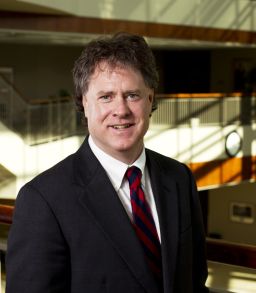Editor’s Note: Mark Osler is the Robert and Marion Short Professor of Law at the University of St. Thomas (Minnesota). The views expressed in this commentary belong to the author. View more opinion at CNN.
On April 20, Minnesota Gov. Tim Walz held a news conference with the CEO of EcoLab, one of his partners in an important initiative to obtain medical supplies in response to the Covid-19 crisis. During that talk, he sheepishly admitted being somewhat handicapped because his dog, a black lab mix named Scout, had eaten his glasses.

Those few minutes summed up the Democratic governor pretty well. He might not be the most polished guy, but he’s getting things done. In the face of a global pandemic that has already claimed the lives of more than 78,000 Americans and brought about unprecedented change, Walz’s dose of humility is a welcome contrast to the bluster and unwarranted certainty of some other leaders.
When Walz talks about the pandemic, he is more of a football coach than a slick politician, and there’s a reason for that. Before entering politics as a member of Congress in 2006, he was a soldier in the Army National Guard, a teacher, and yes, the football coach at Mankato West High School. Top-division high school football in Minnesota is usually dominated by teams from the Minneapolis/St. Paul suburbs, but Walz led a team from Blue Earth County to win its first state championship.
Watching Walz address Minnesotans in daily news conferences, he seems like the coach he was, preparing his team for the big game: he delivers the facts, urges his people on, and walks through potential scenarios. As he leans over a chart, his jacket gapes open and his gaze is intense. An observer likely expects the conference to end with “Let’s do this!” before everyone runs out of the room and into the tunnel to the field.
It’s an endearing approach that has produced some success. Minnesota, despite a large urban population, has so far avoided the spike in deaths that have occurred in some other Midwestern states. Walz, of course, has an advantage other states lack: Minnesota is the home of a large research university (the University of Minnesota) and the Mayo Clinic, which Walz has enlisted to provide up to 20,000 Covid-19 tests a day in what would be the most aggressive testing program in the country.
Walz referred to this as a “moon shot” project, and there might not be anything more Minnesotan than equating the production of an adequate number of medical tests to space travel – in Minnesota we’re all about mastery of the seemingly mundane.
Walz, unlike some other Democratic governors, has approached President Donald Trump more as an unruly teammate than a rival from an opposing team. When Trump undermined Walz’s stay-at-home order and tweeted “LIBERATE MINNESOTA!,” Walz gave the President a call that Trump described as “very nice.” Walz, who said he asked the President for help getting medical equipment, told reporters, “I’m not interested in adjudicating why we don’t have those things, I’m just interested in getting them.”
It was a coach’s approach: get everyone working together, and get the ball over the line.
Certainly, Walz has had a few fumbles. His administration has finally begun issuing conditional medical releases to inmates, weeks after calls to thin out prison populations. The state has been lucky – as of May 10 no one has died of Covid-19 in a Minnesota prison – but the threat is real as many of the nation’s hot spots for the disease are jails and prisons.
Walz’s skill set as a coach, though, seems to be a pretty good fit for this moment. While teaching at Baylor, I spent 10 years watching the legendary Kim Mulkey coach the Baylor Lady Bears basketball team to championships, and I realized her chief tool was persuasion. She would plead, scold, affirm, and encourage her players to do the right thing, and she was a master at all of it. There was a lot of pointing involved, something that seems to be a feature of Walz’s style, too.
Nearly every governor urged people to stay home when the coronavirus hit, and for some of them this form of direct persuasion seemed to be a new role. Not for Walz; like Mulkey, he had been giving halftime speeches for much of his life. When he pulls out a chart and starts talking about where things are going, it’s hard not to imagine X’s and O’s, two receivers wide and a tight end staying back to block.
When many of our leaders rely on boastfulness, division, and sycophancy, it’s refreshing to see Minnesota’s coach offering something different. When failure is measured in deaths and the economic outlook is being compared to the Great Depression, a leader who is used to calling on teamwork, sacrifice, hard work, and inspiration might be, as we say in Minnesota when offering high praise, “pretty good.”


